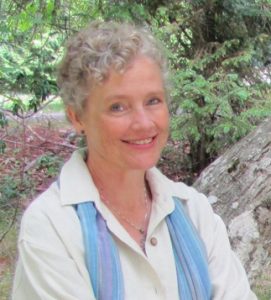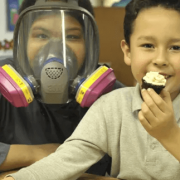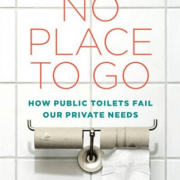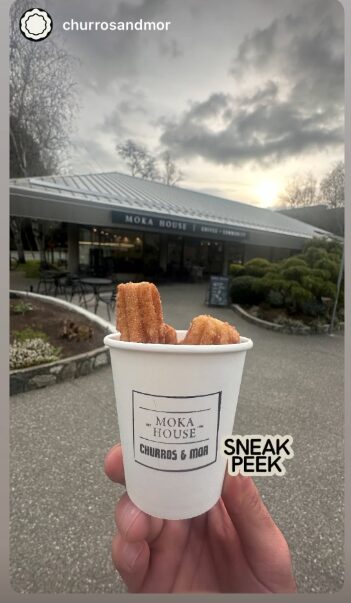The Celiac Counsellor Talks About Mourning and Celiac Disease
Six months ago, my mom died after a lengthy illness. In mourning her since then, I have noticed familiar feelings I associate with celiac disease.

Sherry Scheideman, Celiac, M.A., Registered Clinical Counsellor
- Celiac Counsellor’s Corner* is a place where Sherry Scheideman, M.A., Registered Clinical Counsellor, responds to your questions about the emotional and social issues that celiacs face. Diagnosed with celiac disease herself in 2001 in Victoria, BC, Sherry draws upon personal experiences and a Master’s Degree in Counseling to support you in transcending this ‘life transition’ and turning it into an opportunity to live your best life – ever.
******
 Mourning isn’t just for the loss of a loved one. It also goes along with the loss of a beloved way of life, like when celiac disease shatters our old ways and opens a bleak future of deprivation.
Mourning isn’t just for the loss of a loved one. It also goes along with the loss of a beloved way of life, like when celiac disease shatters our old ways and opens a bleak future of deprivation.
When a loved one’s prolonged suffering finally ends in death, we feel some relief, but the reality of their loss still plunges us into grief. Similarly, with celiac disease we’re relieved that our health can be restored by the gluten-free diet, but the loss of our familiar easy lifestyle, our dietary freedom, and our social dining flexibility is very real. We mourn this even as our health improves.
Mourning a significant loss like this is different for every person, but can involve sadness, anger, fatigue, social withdrawal, oversensitivity, confusion, hyperactivity, or disturbed sleep, just to name a few. This can be quite constant at first, and then can continue to hit you unexpectedly when something triggers it.
In working with my own feelings of grief and loss over my mom’s death, I’ve found comfort in a surprising technique that I’d like to share with you. Maybe you can find some relief in it, too.
Here’s what I’ve noticed. When a wave of grief strikes, it’s a powerful, intense feeling, and I think, “This is the unbearable pain of loss.” Then I feel powerless – the loss has happened, there’s nothing I can do about it, and I’m condemned to live with this pain. But what if I question my thinking?
Let me question the thought, “This is the unbearable pain of loss.” Is it true? Can I absolutely know that this powerful intense feeling is the unbearable pain of loss? Maybe it’s something else. Maybe it is the feeling of my mom being with me. When I believe the intense feeling is Mom’s presence, I feel gratitude for the powerful sensation, instead of dread and resistance.
Let’s apply this to celiac disease. Imagine you’re at work, and everyone else is celebrating an occasion by eating cake. A wave of grief strikes – grief for the cake you used to enjoy, and grief for the cake-less life ahead. You think, “This is the unbearable pain of loss!” and you fight back tears.
Desperate for relief, you decide to question your thinking. “Can I absolutely know that this strong sensation is the unbearable pain of loss?” Maybe it’s something else. Maybe it’s an invitation to open your eyes to the reality of the cake scene. What’s really happening here? Your colleagues are delighting in cake. How adorable they are! What a lovely scene! You personally choose not to have cake because it is harmful to you, but you love it that they are enjoying it.
When you interpret your strong feelings this way, you can feel gratitude instead of despair. Feeling positive and strong like this puts you in a better position to effectively deal with the challenges of being gluten-free.
Celiac disease is great for giving us practice at transforming grief. This gives us confidence that we can handle whatever might happen next in this mysterious and wonderful life we live.
Sherry
- Contact Sherry
- View previous Celiac Counsellor Corners enter ‘Sherry‘ into the search field at the top right of this page

“Life happens! Why not love it?”
“Being diagnosed with celiac disease and going gluten-free has challenged me to develop inner resources that I never knew I had, and I’m grateful for that. As a counsellor, I love to help other celiacs find their own gifts within the challenges of the disease, and to facilitate healing. Why not let your celiac disease motivate you to be your best self?”
- About Sherry Scheideman
- What happens in a session?
- Not in Victoria? No Problem. Sherry does Skype
- Be inspired – Sherry’s Blog
- Sherry Scheideman on Facebook
- Contact Sherry
-
- *Information and perspectives provided in Celiac Counsellor’s Corner are intended to provide general information, without independent verification on the part of The Celiac Scene for the accuracy of the information provided to it. The information is specifically not intended to be a substitute for medical diagnosis or treatment by your physician or other health care professional. You should always consult your own physician or other health care professionals about any medical questions, diagnosis, or treatment, especially before trying any diet. The Celiac Counsellor’s Corner does not accept any liability for any injury, loss or damage incurred by use of or reliance on any content contained herein.













